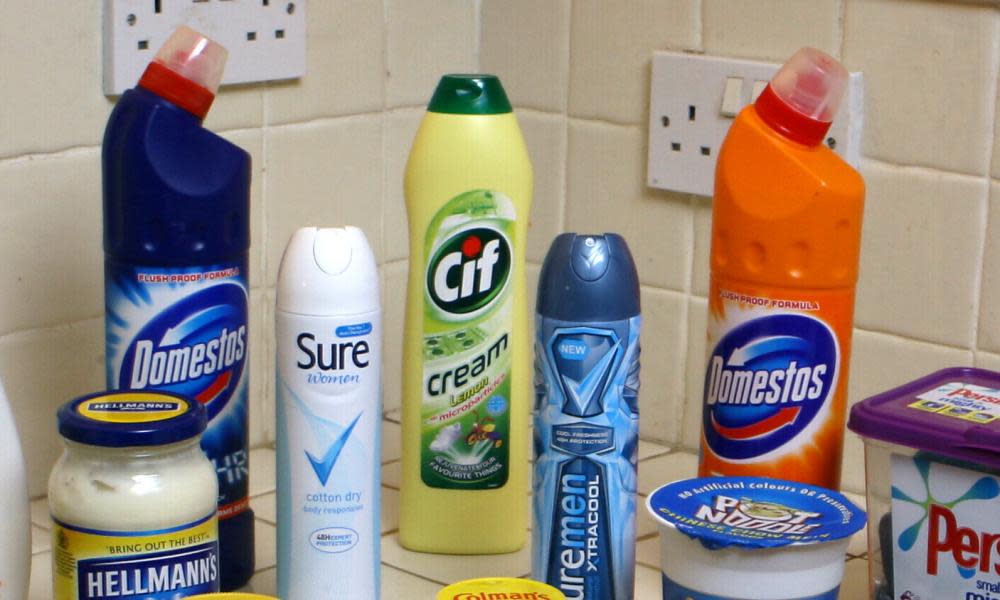Unilever plans to remove oil-based ingredients from all cleaning products

The owner of Persil, Domestos and Cif is to invest €1bn in eliminating fossil fuel-based ingredients from its cleaning products by 2030.
Unilever’s “clean future” initiative aims to develop renewable or recycled alternatives to chemicals derived from the oil industry as part of the company’s pledge to eliminate carbon emissions from its products by 2039.
The investment in research and development for eco-products comes on top of €1bn Unilever has already committed over the next decade for environmental projects that will improve the “health of the planet”.
The company, which owns more than 400 brands including Marmite, Dove, Comfort and Sure, has also pledged to reduce the mountain of plastic rubbish that its products generate.
With nearly half of the carbon footprint of the consumer goods giant’s cleaning products coming from oil-based ingredients, reformulating with eco-friendly alternatives is expected to reduce their environmental impact by up to a fifth.
A whole “rainbow” of alternatives, varying from well-established palm oil-based chemicals to those derived from algae, plastic waste and carbon captured from energy production, is being investigated.
Peter ter Kulve, Unilever’s president of home care, said it was essential to investigate a diverse range of alternatives to “grow within the limits of our planet”.
He said that Unilever hoped that by sharing details of its “carbon rainbow” – outlining the different possible alternatives for sourcing fossil fuel-based ingredients – Unilever was “calling on an economy-wide transformation”.
“A new bioeconomy is rising from the ashes of fossil fuels,” he said.
“We’ve heard time and time again that people want more affordable sustainable products that are just as good as conventional ones. Rapid developments in science and technology are allowing us to do this, with the promise of exciting new benefits for the people who use our products, from ultra-mild cleaning ingredients to self-cleaning clothes and surfaces.”
This week, one of the first innovations will hit shelves in the UK: a Persil washing liquid including a stain remover derived from sugar cane. The Persil bottle will also now be made with 50% recycled plastic and has been redesigned to use less plastic, reducing the total virgin plastic by 1,000 tonnes per year.
Cif cleaning liquid on sale in the UK is also to be reformulated with a cleaning agent derived from recycled plastic bottles.
Meanwhile in southern India, Unilever is sourcing soda ash – an ingredient in laundry powders – made using a pioneering technology that captures carbon from energy production.
Madhu Rao, head of home cleaning products at Unilever, said that the company intended to transform existing well-established brands around the world to make them more sustainable, bringing lower carbon alternatives into the mainstream.
“We are on a big journey and this is the starting point,” he said.
Rao said Unilever continued to see an “unprecedented level of demand” for health and hygiene products around the world during the pandemic as families spend more time cleaning and disinfecting their homes as they try to fend off the virus.
But he said: “The heightened awareness around cleanness doesn’t take away the crisis everybody feels today – the climate crisis. The battle of our lifetime is climate change and consumers are very focused on this. Two-thirds of consumers want to buy more sustainable products and packaging that is sustainable.”

 Yahoo News
Yahoo News 
